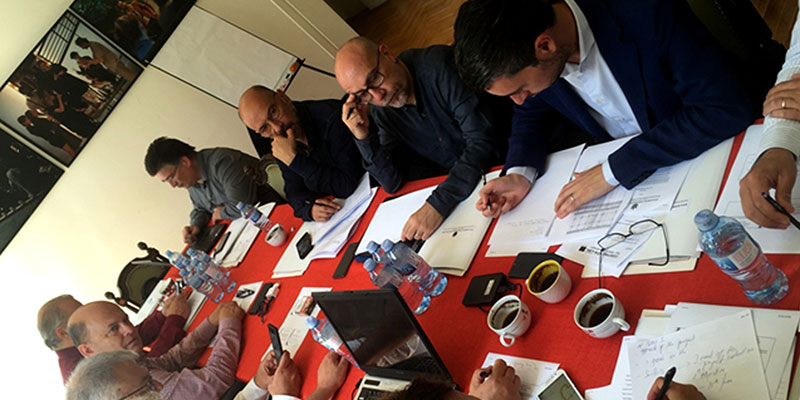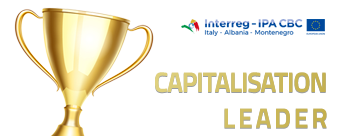
On 30 and 31 May, the Royal Theatre Zetski Dom organized in Cetinje (Montenegro) the kick off meeting of the project ADNICH ADriatic Network of Artistic Productions for the development and enhancement of Intangible Cultural Heritage, cofunded under the Interreg IPA CBC Italy-Albania-Montenegro Programme.
The aim of the project is a creation of a South Adriatic network between Italy, Albania and Montenegro, which can enhance the immaterial heritage of the three countries through art and theatre, by dialoging the different expressive elements of anthropic landscape (identity, traditions and so on).
As a Lead partner, the Royal Theatre hosted in Cetinje the representatives of the institutions from International Theatre Institute (ITI) and University of Salento (Italy), and representatives from the Municipality of Pogradec and University of Arts Tirana. The aim of this meeting was to gather all partners at the beginning of the project in order to agree on joint vision and main goals of the project as well as on the first steps in the project implementation.
“Italia, Albania and Montenegro present extraordinary features of Mediterranean cultures. At the same time, they face quite similar issues in terms of ethnic minorities and immigrants’ integration, gender disparities. These issues, if managed correctly, may favor a new artistic and cultural synthesis in terms of theatre production, which is the subject that ADNICH intends to explore and promote, in the audience development perspective” said Mr. Fabio Roberto Toledi (ITI, Italy).
In regard to the main goals of ADNICH project, Mr. Mariano Longo from the University of Salento explained that ADNICH is designed to increase cross border cooperation and audience development in the 3 countries, promoting the enhancement of their intangible assets and organizing new forms of experiential and cultural products. “It is crucial that the baseline of any common effort on this field is a sociological and historical research led in the selected areas.”
When it comes to the joint vision of all partners included in the meeting, Mr. Kastriot Caushi from the University of Arts, Tirana pointed out that the vision is common and that all partners agreed since the beginning on it; “We want to involve and engage all the relevant stakeholders in the cultural fields with a people-to-people approach. We need to include cultural institutions in the decisional process. We want also to work with a solid and consistent scientific back up in what we produce. The overall aim, in fact, is to achieve long-lasting results for all the involved countries”.

